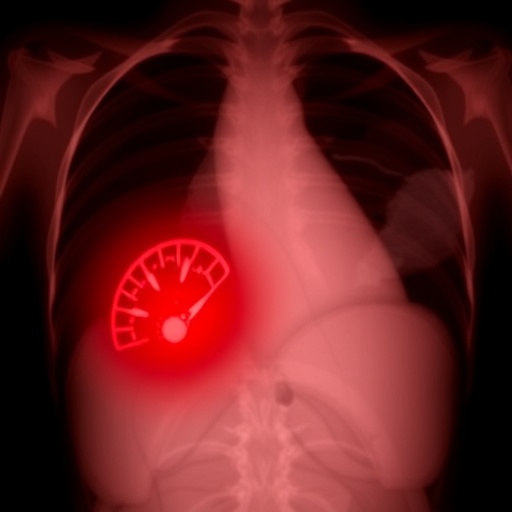A recent case study sheds light on a rare but catastrophic complication arising from the use of the Impella CP device in advanced heart failure management. The clinical presentation of a patient suffering from fatal acute saddle embolism of the terminal aorta after extensive mechanical circulatory support using this device serves as a critical reminder of the potential implications of such interventions. While mechanical circulatory devices have become a cornerstone in treating severe cardiac conditions, the risks involved with their long-term use demand comprehensive understanding and vigilance.
The Impella CP is a type of percutaneous ventricular assist device, primarily designed to promote hemodynamic stability in patients with severe left ventricular systolic dysfunction. Functioning as a microaxial flow pump, the Impella CP draws blood from the left ventricle and propels it into the ascending aorta. This innovative device, while providing immediate support, presents potential risks that clinicians must navigate carefully to optimize patient outcomes.
In the reported case, the patient had been on long-term support with the Impella CP due to deteriorating heart function. Over time, the mechanical support altered hemodynamics and, in this instance, contributed to an embolic event. Such complications, while rare, underscore the importance of monitoring for thrombus formation in patients who rely on long-term mechanical support. Emboli can lead to serious vascular occlusions, notably in the aorta, significantly diminishing organ perfusion and leading to acute ischemic events.
Acute saddle embolism, characterized by a clot that lodges at the bifurcation of the aorta, can lead to catastrophic outcomes. The findings suggest that prolonged reliance on ventricular assist devices necessitates careful consideration of anticoagulation strategies to mitigate the risk of thrombus formation. Despite existing guidelines recommending anticoagulation in support device use, the specific protocols and individual patient management strategies remain hotly debated.
The case raises crucial questions regarding the long-term management of patients on devices like the Impella CP. How can healthcare professionals balance the immediate benefits of hemodynamic support against the risk of thromboembolic events? Having precise protocols may not only enhance patient safety but also improve the overall efficacy of mechanical circulatory support systems. The interplay between device mechanics, patient physiology, and anticoagulation is complex and demands ongoing research and sophisticated clinical judgment.
Further complicating the scenario is the reality that mechanical circulatory support is often implemented in critically ill patients with multiple comorbidities. Such patients may already have disrupted coagulation pathways, which can complicate management strategies. Clinicians must take a personalized approach, continuously evaluating the risks versus rewards of continued device support. This case serves as a tragic example of how failure to adequately address or anticipate these risks can have dire consequences.
Healthcare systems should facilitate interdisciplinary discussions to address the risk of thromboembolic events associated with long-term mechanical support devices. Cardiologists, surgeons, and critical care specialists must work together to develop comprehensive care plans that account for the unique risk profiles of each patient. Engaging in such collaborative practices may yield better preparations for the complexities that arise from mechanical support systems.
Additionally, advancements in imaging and monitoring technology can enhance the early detection of potential embolic events. Utilizing non-invasive imaging techniques might allow for closer surveillance of thrombus formation, providing an opportunity for timely intervention before catastrophic outcomes occur. The integration of technology into standard care practices can be a game-changer in the management of patients requiring mechanical circulatory support.
The insights gained from this case serve not only as a grave reminder but also as a call to action for researchers and clinicians to further investigate the underlying factors that contribute to such complications. Understanding the precise mechanisms of clot formation related to the mechanical operation of devices like the Impella CP is paramount to improving patient safety and outcomes. Ongoing clinical trials and studies will be essential to refine existing practices and develop novel strategies for risk mitigation.
Training and educating healthcare professionals about these risks is essential for improving patient care. Incorporating educational modules focused on the sequelae of long-term mechanical support can lead to better preparedness among medical teams. Greater awareness may ensure that clinicians remain vigilant to the signs of potential complications, leading to quicker interventions when needed.
In conclusion, the case of fatal acute saddle embolism following long-term support with the Impella CP underscores the critical need for continued advancements in the management of patients with severe heart failure. While mechanical support devices have revolutionized cardiac care, their use must be judicious, accompanied by robust protocols aimed at mitigating the risks of thromboembolic phenomena. Through collaborative practice, technological integration, and ongoing research, the medical community can strive to enhance the safety profile of these life-saving devices for patients at risk.
This tragic incident encapsulates both the potential and the perils associated with the current best practices in cardiac support technology. It serves as a potent reminder of our responsibility as healthcare providers to remain acutely aware and responsive to the evolving complexity of patient care in the face of technological advancement.
Subject of Research: The complications associated with long-term mechanical circulatory support using Impella CP.
Article Title: A case of fatal acute saddle embolism of the terminal aorta after long-term support using Impella CP.
Article References:
Kishimoto, S., Hiraoka, A., Chikazawa, G. et al. A case of fatal acute saddle embolism of the terminal aorta after long-term support using Impella CP. J Artif Organs (2025). https://doi.org/10.1007/s10047-025-01499-7
Image Credits: AI Generated
DOI:
Keywords: Mechanical circulatory support, Impella CP, acute saddle embolism, thromboembolic events, heart failure management, anticoagulation strategies, patient safety.




